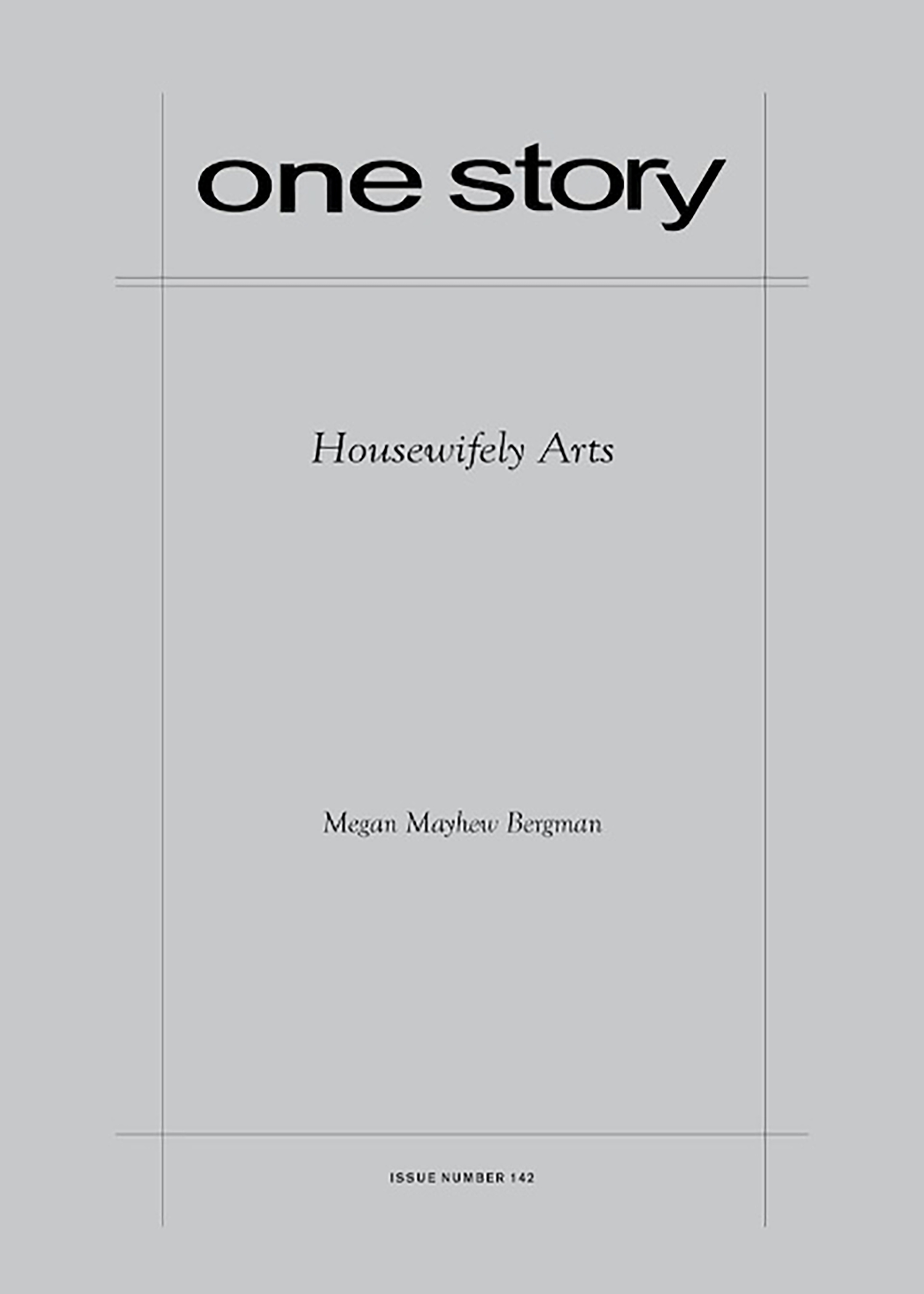
Housewifely Arts
$2.50
36 in stock
Excerpt
I am my own housewife, my own breadwinner. I make lunches and change light bulbs. I kiss bruises and kill copperheads from the backyard creek with a steel hoe. I change sheets and the oil in my car. I can make a pie crust and exterminate hump back crickets in the crawl space with a homemade glue board, though not at the same time. I like to compliment myself on these things, because there’s no one else around to do it.
Turn left, Ike says, in a falsetto British accent.
There is no left—only a Carolina road that appears infinitely flat, surrounded by pines and the occasional car dealership billboard. I lost my mother last spring and am driving nine hours south on I-95 with a seven-year-old so that I might hear her voice again.
Megan Mayhew Bergman
Megan Mayhew Bergman lives on a small farm in Shaftsbury, Vermont with her veterinarian husband and daughter. She received her MFA from Bennington College, and her work has recently been featured in the anthology New Stories from the South, Ploughshares, Narrative, Kenyon Review, and Oxford American.
Q&A by Karen Friedman
- KF: Where did the idea for this story come from?
- MM: I am fascinated by our ability to live with paradox. If everything else seems to function relatively well, then we accept and eventually ignore these glaring inconsistencies. Our brain has this amazing capacity for bifurcation and isolation; I suppose it is a survival instinct, like if you are trapped in the woods with a gangrenous leg you are going to keep going and ignore the rotting leg. It is happening in theoretical physics right now, this rotting of the leg—we have models for explaining how the extremely small behave and how the extremely large behave, but they absolutely do not work with each other. We have not yet found the seam. And is it important to find the seam, if everything else works fine? Well, yes. This same kind of isolationist thinking leads to war—“if we only do this here, this one time, then it won’t apply under these rules.” We are local creatures and we are creatures that love to live by exceptions to the rule.
- KF: What was the most challenging aspect of writing this story?
- MM:
- KF: Your story contains some heartbreaking observations about motherhood, and I know you wrote it shortly after your daughter was born. In what way do you feel like that transition influenced the story?
- MM:
- KF: Although you now live in Vermont, you spent most of your life down south, which makes me wonder whether you identify yourself as a southern writer.
- MM:
- KF: At one point the main character calls Carnie an “ebony beaked wise-ass”. Even after reading your story a dozens of times, there are still lines that make me laugh out loud. Do you consider yourself a wise-ass?
- MM:
- KF: Ike is a delightful character—one of the best children I’ve read in a long time. Was there a real-life inspiration for him?
- MM:
- KF: Why does the main character decide to stay at the end, and do you think she will live in the same house for the rest of her life?
- MM:
- KF: How long did it take you to complete this story?
- MM:
- KF: What are you working on now?
- MM:
- KF: What is the best bit of advice about writing you have ever received?
- MM:
